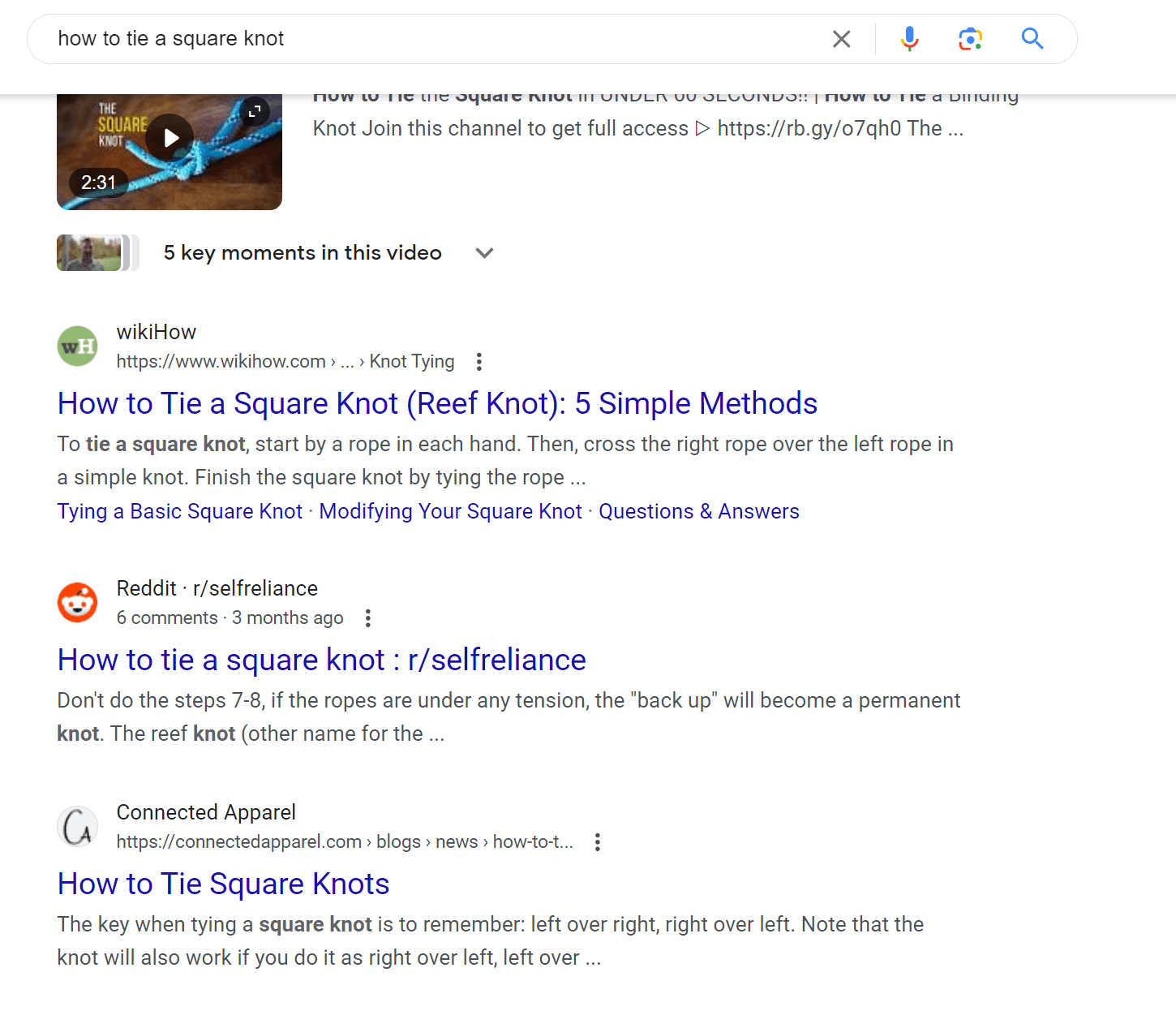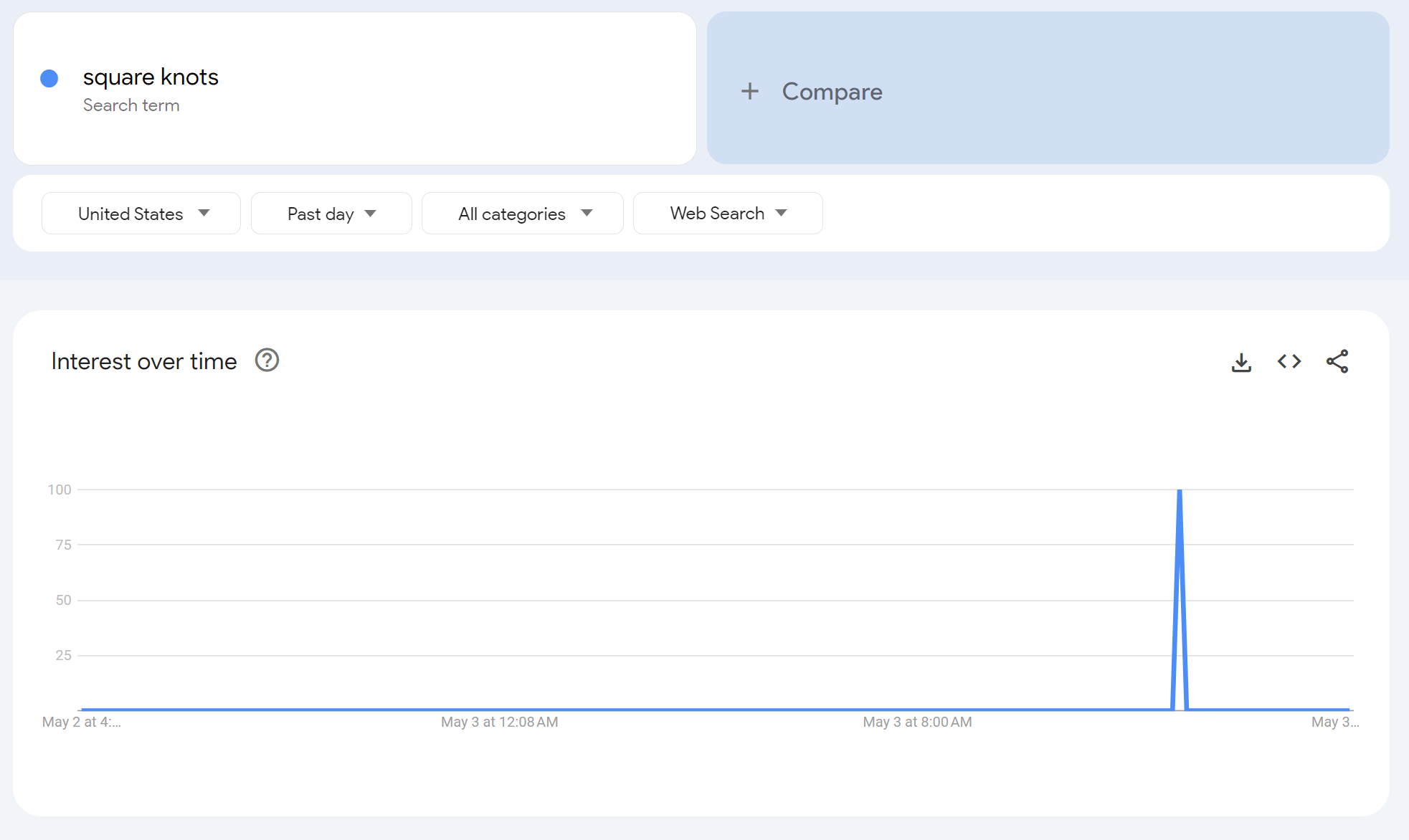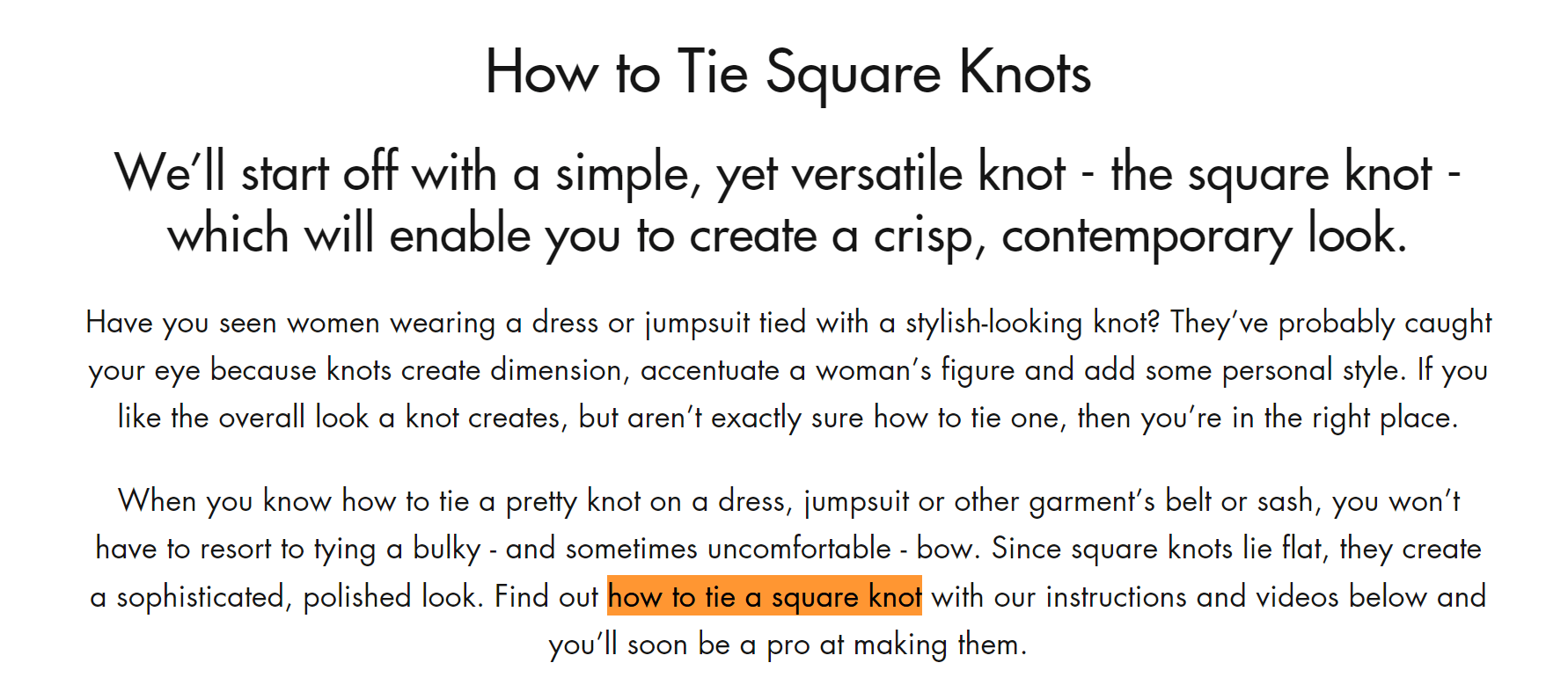Rankings — if you work with search engine optimization (SEO) or know anything about it, you’ve probably heard that term more than once. Where you rank in search results (and for what keyword) affects your SEO performance significantly.
What is keyword ranking?
A keyword ranking is a URL’s position in organic search results for a specific keyword, like #1 for “how to tie a square knot” or #10 for “square knot tricks.” Websites optimize keyword rankings using search engine optimization tactics like keyword insertion, content creation, and link building.

Why do keyword rankings matter?
Keyword rankings matter for a few reasons, including:
- Visibility: When you rank higher for keywords, you have greater visibility in search results. In fact, only 6% of clicks go to URLs with a keyword ranking greater than 10.
- Traffic: More visibility translates to more traffic. Studies show URLs ranking anywhere from 1-10 receive 71% of clicks, which calls back to the SEO saying that “the best place to hide a dead body is page two of Google.”
- Revenue: With more visibility and traffic, you have the fuel to drive revenue from search. Of course, how much revenue you generate from search depends on your keyword targeting — and whether it targets your target market.
What determines keyword rankings?
More than 200 factors determine your keyword rankings, including:
- Whether your URL is crawlable and indexable
- Whether your URL’s content aligns with the user’s search intent
- Whether your URL uses similar or identical terms to the search query
- Whether your website is considered reputable and trustworthy
You can use our How Search Engines Work Guide to learn about these factors in-depth.
How to track keyword rankings
While it’s possible to track keyword rankings manually (and many companies do this for answer engines like ChatGPT), there are plenty of rank tracking tools that can help you monitor and track your keyword rankings over time.
| Tool | Price | Use cases |
| Google Search Console | Free |
|
| Ahrefs | Paid |
|
| Mangools | Paid |
|
Note: For more advanced rank tracking, like for answer engines, there is OmniSEO™.
How to optimize keywords for SERP rankings
The great thing about keyword rankings is that you can try to rank for multiple ones over various pages, giving you more chances to gain prospective customers. Use the following strategies to improve your keyword rankings.
1. Conduct keyword research
You must start with keyword research to optimize your pages for keyword ranking.
Learn what your target audience is frequently searching to choose relevant keywords to include in your content. You can use keyword research tools, like Semrush or Google Trends, to assist you in finding the right ones to focus on.
Consider the following when determining which keywords to use:
Search volume
Researching the search volume of certain phrases or words can help you determine which ones to use. The search volume shows how often users search for a keyword within a period. It can reveal if a specific keyword is popular and competitive. If it is, you can create content surrounding it and have more certainty that the word will increase traffic to your site.

Keyword difficulty
Keyword difficulty measures the estimated difficulty of a specific keyword’s organic ranking based on its competitiveness. The metric indicates which keywords are more realistic to rank for. Using keyword difficulty measurements in conjunction with search volume can provide valuable insights to help you decide which keywords you will target.
Search intent
Another consideration is the “why” behind users’ search queries. Why are they typing in specific keywords to find the answers they seek? A user’s intent, or search intent, is why a user types particular queries into a search engine. Types of search intent include:
- Commercial
- Informational
- Navigational
- Transactional
Knowing the search intent can help you develop a more effective content strategy to better focus on the keywords and align with the target audience’s needs. Creating more relevant content shows search engines that it is valuable to users, helping the pages rank higher in search results.
Competitor keywords
It is also valuable to look into your competitors’ keywords to see how they use them. Understanding your competitors helps you create content that competes with theirs and could outperform them. You could also use the information to learn about parts of your current SEO strategy that need improvement.
Through competitor keyword analysis, you may also find similar keywords to target that are relevant to the primary one or ones that you have yet to try targeting. (Hint: The SEO.com app can help you streamline this process!)
2. Place keywords strategically within content
Once you have the keywords you plan to use based on the topics you come up with for content, you can strategically place them within the copy. Use keywords a few times throughout the copy to help influence the rankings.

Some best practices include:
- Using the primary keyword within the first 100 words of the article.
- Including the keyword in the call to action (CTA) paragraph.
- Incorporating keywords naturally into the copy.
While you want to use keywords effectively to get your pages ranking higher in SERPs, it’s important to avoid keyword stuffing. This is when you overuse keywords in an attempt to influence your rankings. Having too many keywords within a piece — especially when used close together — affects the content’s readability, which could make visitors switch to a different website.
Create a balance depending on how many words are planned for a piece of content to ensure adequate keyword density. For example, if your piece has 5000 words, you could use keywords around every 100–150 words to ensure they get appropriately used while dodging keyword stuffing.
3. Optimize other parts of content
Using keywords in other parts of your website content besides the main body copy can also help with your keyword ranking practices. Consider placing keywords in:
The more places you can insert keywords without them being too repetitive or overwhelming, the better your chances of ranking in SERPs.
Improve your keyword rankings for better SEO
Understanding and optimizing your keyword rankings is essential for driving organic traffic and improving your site’s visibility. By implementing effective strategies for keyword research and placement, you can enhance your content and attract more visitors.
Need expert help? Learn how our team can assist you in optimizing your keyword strategy and improving your overall SEO performance. Contact us online today to get started!
Let’s Drive Results Together 

Meet
Connect with us, today!
Writers

Related Resources
- What is Google Local Pack? (And How to Rank for It)
- What is Google Trends?
- What is Keyword Clustering? Learn the Basics with SEO Pros
- What is Keyword Difficulty? (And How to Use Keyword Difficulty for SEO)
- What is Keyword Stuffing? (And Why It’s Bad News for SEO)
- What is Link Building? Your Guide to Quality Link Building
- What is Robots.txt File? Learn the Basics with SEO Pros
- What is Search Intent? + How to Determine It
- What is SEO? Learn the Essentials of Search Engine Optimization
- Google Tag Manager: What is It, and What Can It Do?


